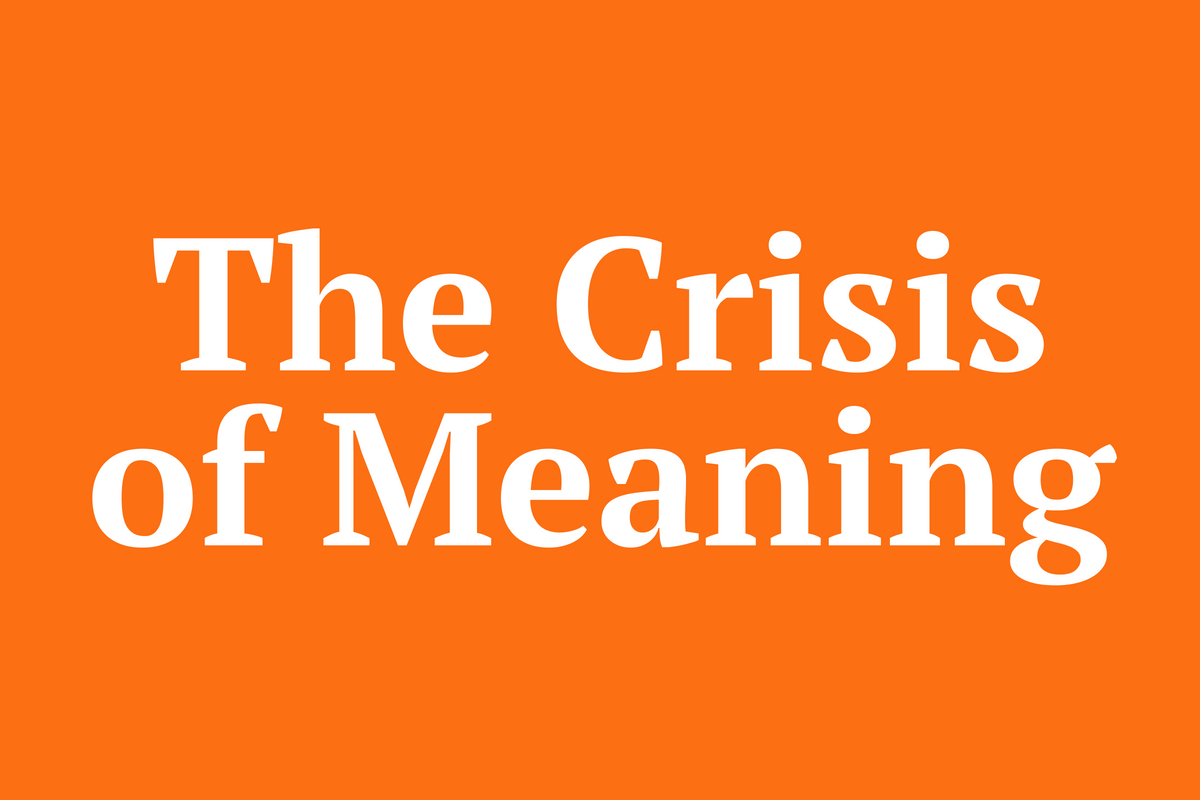
Designing a new echo chamber theory
Before I started at the Oxford Internet Institute in September 2017, I wrote a definition of echo chambers.
“An echo chamber is a community with little variance in opinion. It is a place where there is no desire, or a means, to access a different point of view.”
I spoke at a conference and invited feedback on this definition. Did it fit with what others had in mind when they thought of what an echo chamber was? This had two responses. One was positive. This definition is platform neutral so it works for both online and offline homophily. It situates an echo chamber as a community, and not as the inherent characteristic of an individual. By mentioning ‘the means’, alongside ‘desire’, it shows that echo chambers can be solved with education and design changes to internet platforms and protocols. It also is explanatory of echo chambers in the past – either in Nazi Germany or in the Dark Ages.
The second response was interesting. A couple of people came up to me after the conference and remarked that things that I wouldn’t call echo chambers clearly were. It made me realise the nuance of the phrase. Many people have completely different understandings of what an echo chamber is.
My independent work on echo chambers at the OII is starting to take off. I have an excellent supervisor and I want to chart how my opinions are changing on the topic as I read more and discuss with my supervisor and other members of the faculty.
So here is my first post on the topic and my initial thoughts before I really get stuck in.
Echo chamber as a metaphor
The first is to note that in both the academic literature and journalistic articles, an echo chamber should be treated as a metaphor. It is not (yet) a theory. The first book on ‘echo chambers’ was a literary novel by Gabriel Josipovici written in 1980. The first mention of a non-fiction echo chamber was in 2001 in Sunstein’s Republic.com. In this book, Sunstein refers to echo chambers as a metaphor to describe citizens just reading a personalised newspaper called the ‘Daily Me’. Sunstein’s work has influenced a lot of further commentary and debate on internet ethics. However, you wouldn’t say that Sunstein has developed a succinct ‘echo chamber theory’. Instead, you’d say he uses it sporadically as a metaphor to describe different parts of his work.
The first book on ‘echo chambers’ was a literary novel by Gabriel Josipovici written in 1980.
Eli Pariser’s ‘The Filter Bubble’ details how personalised algorithms lead us to see drastically different Google results and Facebook feeds. This is true. He then theorised some unfavourable outcomes given uber-personalisation. This book had a real effect on me when I first read it. I produced two special reports for The Times on ‘Customer Loyalty’ in 2013 and in 2014. Each of these reports sung the praises of personalisation in commerce. It was the first time I woke up to what could be happening online.
About a year ago my own understanding of what echo chambers are started to deviate from the Pariser and Sunstein literature. I exchanged emails with a think-tank about the difference between a filter bubble and an echo chamber – we agreed that echo chambers are self-constructed and filter bubbles are linked to tech. This is more of a semantic difference – it feels right that this should be the line of differentiation. So in a sense it is also metaphorical. But it’s one that’s stuck through most of my thoughts and writings on the topic.
From reading many academic articles and books this year that try to ‘confirm’ or ‘debunk’ echo chambers, it’s clear individuals take slightly different interpretations of what an echo chamber is. For example, one could define echo chambers as ‘access to ANY information with a different point of view’, or ‘reading anything with a different point of view’, or ‘interacting with anything with a different point of view’. Most look at whether an individual is firmly in an echo chamber or not, and not whether you have a greater propensity to be in an echo chamber than others. You can see how these subtle differences lead to a lot of confusion. If you were being unkind, you could say that some chose which definition would suit them according to what they already thought about the topic.
Initial ideas
I haven’t yet embarked on a systematic literature review so the following should be viewed as my thoughts having spent 4 months going through the compulsory reading lists here. This is how I think an echo chamber should be theorized right now – however, I’m fully expecting my feelings to change.
The community part of an echo chamber must remain in the definition. An individual will have access to many different points of view in their on and offline communities. This could be through the different groups they are part of. To give a personal example; I have a grandfather in Yorkshire who is broadly against immigration. My grandparents in Cornwall voted for Brexit. I am a feminist, but many of my male friends (at least in June 2017) were not taking part in any of the conversations I was having with my female friends about feminism. I am part of the centre-left metropolitan elite. I occasionally go to football matches down in Portsmouth. I have friends that I speak with about politics, and I have friends who I speak with about hair products. These all fit with the idea of an echo chamber being a place with a little variance in opinion. When I go to Portsmouth I mainly talk about how great Portsmouth Football Club is – there is no variance in opinion there. You hopefully see what I’m getting at.
For some reason, it is very difficult for me to speak with a person in another echo chamber about another topic. I was struck in October 2017 about how little words I had to describe feminism to a man who was not talking about feminism. It’s jilted, it’s difficult and it’s messy. We don’t have the same experiences here. It’s very easy to go back to topics that we like to talk about. Similarly for my grandparents who support Brexit. We do ANYTHING to avoid talking about Brexit at the dinner table.
Language and echo chambers
For this reason, I think that language will have a strong part to play in an echo chamber theory. We may have access to different points of view – but although we may be speaking English, our understanding and definitions of words will be completely different. Take the word racism – there is a huge variance in opinion about what that means. The same could be said about the word ‘consent’, or ‘inequality’, or even ‘pink’. We literally speak different languages. I think I’ll have to do some work to understand whether philosophically and psychologically we can reduce linguistics to behaviour and visa versa.
This is also nice because it fits with social science theories of ‘polysemy’. It is well documented that when two people read the same tweet, or hear the same speech, we may get an entirely different meaning from the same words. What I’d like to test is whether belonging to a similar echo chamber will mean that two people get the same polysemy from phenomena.
Polarisation and echo chambers

This takes us to the idea of polarization and fragmentation. It’s very easy to think that another person is an idiot if you are speaking different languages without realizing it. I started to theorise about different levels of misunderstanding there could be.
- An event occurs which is factually indisputable e.g. two planes crash into the World Trade Towers, the Golden Globes take place, the Handmaids Tale is screened on TV. The discussion then fragments – different echo chambers take different stories as primary.
- An opinion piece which is meant for one echo chamber finds its way into another. The document is analysed and perhaps the meaning is misinterpreted and misunderstood by each echo chamber. E.g. the Google manifesto, the case of Justine Sacco, Kate Maltby and Damian Green.
In each of these, there are positive and negative outcomes – I’m simply trying to be descriptive with the above examples.
You’ll find that there will be a dominant conversation in each of your echo chambers. You’ll have different identities in each of them. There may be one that you consider takes a larger part of your life than another.
Homophily theory
Homophily theory dates back to the 19th century. Homophily is defined as the tendency for individuals to align themselves with communities that look like them. This could be according to race, sexuality, gender, age, education and so on. Secondary to this is their common values. It is my idea that up until the advent of the internet, we tended to homophilise according to what we look like, whereas now we’re more likely to homophilise according to our values.
There is a lot of work to be done over the next few months. I need to become familiar with network theory, spiral of silence theory, selective exposure theory, byproduct exposure, as well as polarization and opinion formation theory. In the meantime, I wanted to put these ideas up here in case any of you had any feedback?
Please do comment below or send me your thoughts – editor@echochamber.club or @alicelthwaite.
This Post Has 9 Comments
Comments are closed.






I think language constructs political narratives. Are these narratives that arise interchangeable with echo chambers then? Or is there some kind of relationship? Say, if you define an echo chamber to have a low variance in difference of opinion, and thus interpretation of words… a political narrative will have a low variance of interpretation of a word also… at least that was the assumption I laboured under looking into this!
What thought provoking read. I love it!
Interesting point. My initial thoughts on the topic lead me to think they could be interchangeable with echo chambers – but will have to read up on it!
Great article and beautifully written – thanks again for the initiative.
My two cents:
Whats’s the relationship between polysemy and homophily? I’m a novice in this area but very much intrigued. Historically, is there evidence of polysemy in homophily societies (apologies if I’m getting the unit of analysis mixed up)? Does the desire to share an identity (in this case by what you look like) trump the desire for shared meaning? Fascinating to think they could be separate!
I wonder what role choice plays in all this? I can imagine communities before the internet not having a great deal of social or physical mobility, whereas after the internet both of these sped up (whether due to the internet or to congruent technologies). So before the internet, it was more important to share an identity with those around you than to share meaning. Put another way, people had to put up with their neighbours more before the internet. Nowadays, it’s so much easier to hold true to your own values without exposing them to questioning because you can jump online and find a community who shares your values so easily. Framed this way (hat-tip to Moira’s comment), the internet protocols as they are seem more undemocratic than democratic.
Hi Joe – I’m brand new to the concepts of polysemy and homophily too – so hopefully this makes sense!
Homophily is ‘love of the same’ – so it means our tendency to gather in specific groups. Polysemy refers to our tendency to interpret messages in different ways. So they are two separate concepts. To my knowledge, there hasn’t been that much done about the relationship between homophile and polysemy – it’s something I’d be quite keen to do in the future (if my reading continues to take me down this route).
I’m interested by your last comment – what’s your definition of ‘democracy’ – do you mean in terms of being exposed to different points of view? If that’s the case, then there is some great work being done by Webster (there’s a book called the Marketplace of Attention) which kind of disputes the idea that lots of people have no exposure to different points of view online and offline. I think that’s why the theory needs updating. Apologies if I’ve misunderstood what you meant ?
This really is a fascinating topic. A couple of reading / listening recommendations:
George Lakoff on framing:
Book – Don’t think of an elephant;
Podcast – Framelab Podcast and he also appeared on We can talk about podcast Ep12
John Naughton new writing on 95 theses in the Guardian newspaper and other places. You’ll also find him on some episodes of Talking Politics podcast. A really nice one with a colleague of yours from OII who won the 9 dots prize.
Have fun; this sounds fabulous!!
Thanks for this Moira! I’ll check these podcasts and books out 🙂
I liked the piece – language is key, agreed, but I don’t know how far you can dis-aggregate language and community. I think there’s something missing about ‘facts’ and facts and Facts and ‘Facts’ and information about the world. My understanding of echo chambers is not so much one of differing opinions about the world, but differing understandings of the world itself, the underlying facts and figures and about what’s going on, what the world looks like.
Events as ‘factually indisputable’ is an interesting point, too. I mean, 9/11 happened, but speak to a 9/11 truther and that’s about all we’ll agree on. The facts of the case are far from factually indisputable.
Interesting. When humans communicate regularly they tend to spontaneously create local languages/vocabulary. Often these are optimisations for succinct reference to local phenomena. You could potentially define community in this way. It may be that echo chambers are entirely a natural byproduct of this process.
One thought – Language is a tool to conserve echo chambers. It helps signify who is with you, and what language means you should “stop listening” think about someone who gets triggered and won’t talk more about “climate change”.
This is probably part of a bigger idea of language being a barrier not only between speakers of English, but also as an explanation for the problematic of cross-cultural communication